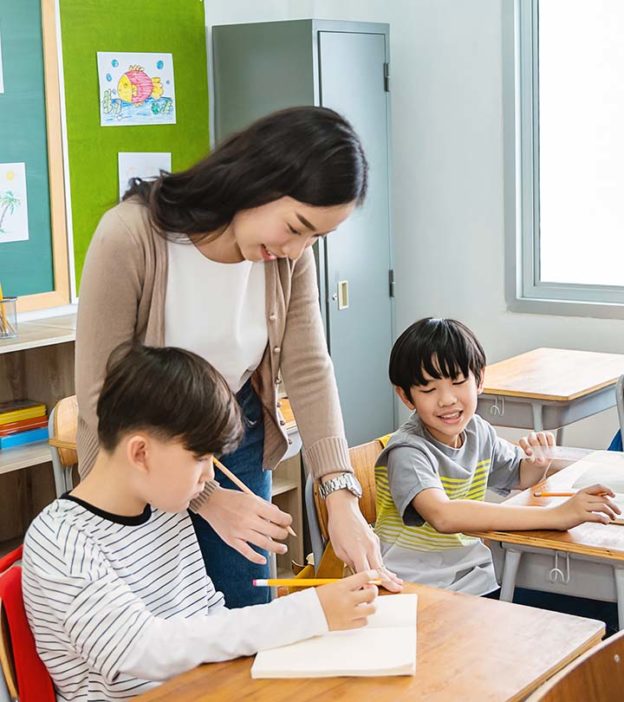
For many years, Japan has set an example of excellence in education. With their innovative teaching methods and high expectations for their students, Japan’s educational system is exceptional. They believe in the quality of learning and maintaining a strict order throughout their schooling. Moreover, they ensure the students are academically advanced and teach real-life skills that develop their personalities. And you must have come across humble gestures and polite courtesies by Japanese people that made you a fan of their culture in no time.
This article will discuss six secrets the Japanese education system offers that set kids up for success.
1. A Tired Kid Is A Hardworking One
First of all, the Japanese school system can be demanding. With extended hours and intense workloads, some students find themselves so exhausted by the end of the day that they just need to doze off in class. However, it’s also important to note that napping isn’t necessarily seen as an act of disrespect towards teachers. Instead, it’s simply viewed as part of staying focused throughout long lectures or exams. Some schools even encourage naps for their students because they understand how taxing studying can be on young minds and bodies and believe that they are working so hard and with a dedication that they don’t get enough time to sleep. And this habit is also well accepted and encouraged during their employment.
2. Students Clean Their School
It’s always refreshing to see Japanese students’ dedication to keeping their classrooms and hallways clean. These hardworking students take time out of their busy schedules to ensure their school is spotless and presentable for everyone who walks through its doors. They have to clean their surroundings and work in teams to make their surroundings tidy all day. It teaches them responsibility, respect for others’ property, and attention to detail – all essential qualities that serve them well as adults! Similarly, we witnessed everyone highly appreciating the Japanese spectators for cleaning out stadiums in the FIFA world cup 2022 after the Japan Vs. Croatia’s match ended.
3. Learning Is Not Limited To Weekdays
For many Japanese students, studying is an integral part of their life, including the weekends and holidays. While most people in other countries are taking time off to relax or enjoy leisure activities, Japanese students can often be found studying hard in preparation for upcoming exams. This dedication to learning has long been a cultural trait that has made Japan one of the world’s leading nations in education and research.
4. Uniform Discipline
Every Japanese school has a uniform dress code for its students. While it may seem like a hassle initially, there are some benefits. For one thing, uniform dress codes eliminate the need for students to compare themselves with each other based on their clothing choices. This can help create a more inclusive environment in which everyone feels accepted regardless of their clothes or how much money their parents have spent on them. And it also makes them understand that all students are equal and that learning and gaining knowledge is their actual purpose for attending school.
5. Lunch Time Is A Family Time
Unlike other countries, Japanese students have a unique eating culture different from other countries. It is common for students to eat together with their teacher in the classroom during lunchtime. This practice allows teachers to create a strong bond with their students and build trust between them. The traditional way of meals in the school involves setting tables and chairs so everyone can sit comfortably while eating.
During this time, teachers are expected to act as role models by demonstrating proper etiquette, such as using chopsticks or not talking too much while eating. Students should also be aware that they must finish their food before leaving the table since wasting food is considered rude in Japanese culture. Furthermore, eating together encourages mutual respect among peers, which leads to better communication between them later when discussing academic topics or any problem-solving activity. In addition, it provides meaningful conversations outside regular class hours, allowing everyone involved to get closer through shared experiences over meals.
6. No Exams To Judge A Young One
In Japan, students only face the pressure of taking exams once they reach fourth grade. This method is a unique and exciting educational approach that could benefit children worldwide. This allows Japanese students to focus on learning for fun and developing their natural curiosity without worrying about grades or results. They can explore different topics in depth rather than just memorizing facts for tests like many students in other countries have to do from an early age. It also gives them more time with teachers who can help guide them through learning essential life lessons and moral values that benefit their personality and mold them into a brighter version of themselves.
The Japanese educational system is known for its rigorous and structured approach to teaching, which helps prepare children for success in the later part of life. While many secrets contribute to the successful outcomes of Japanese students, one key factor is their focus on developing a solid work ethic. Hopefully, you’d have enjoyed learning about these secrets that might help your kids if you introduced them to their educational system. Don’t you think so? Let us know in the comment section below.






